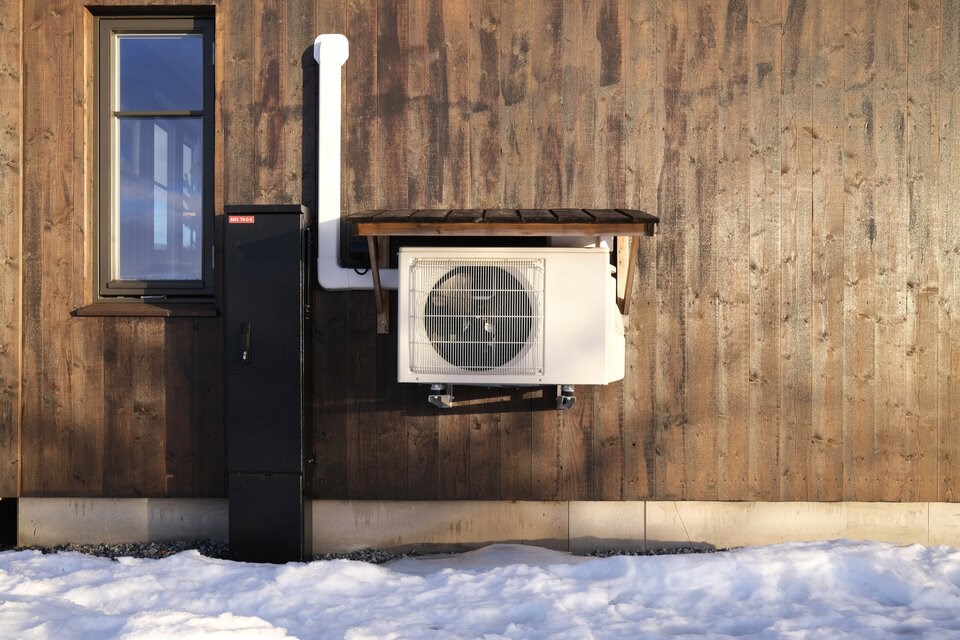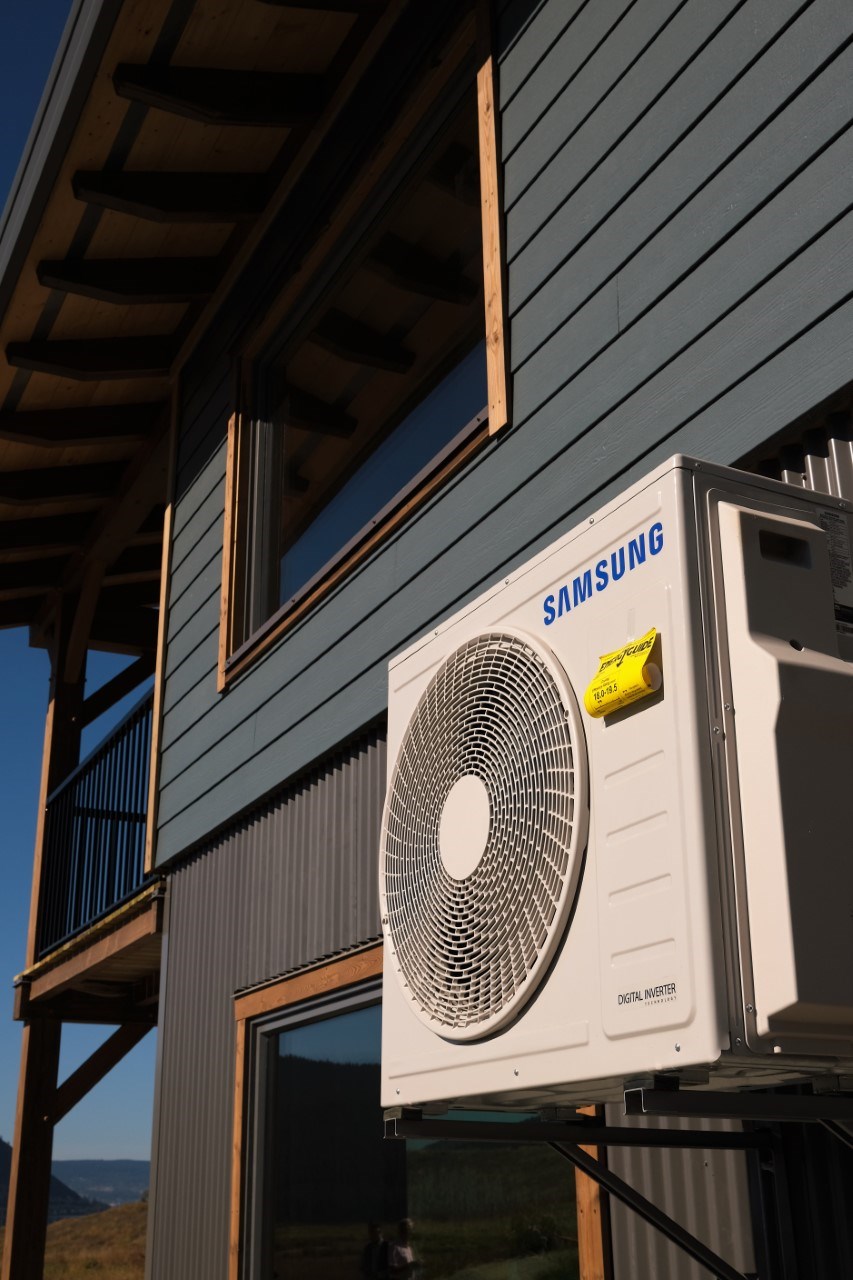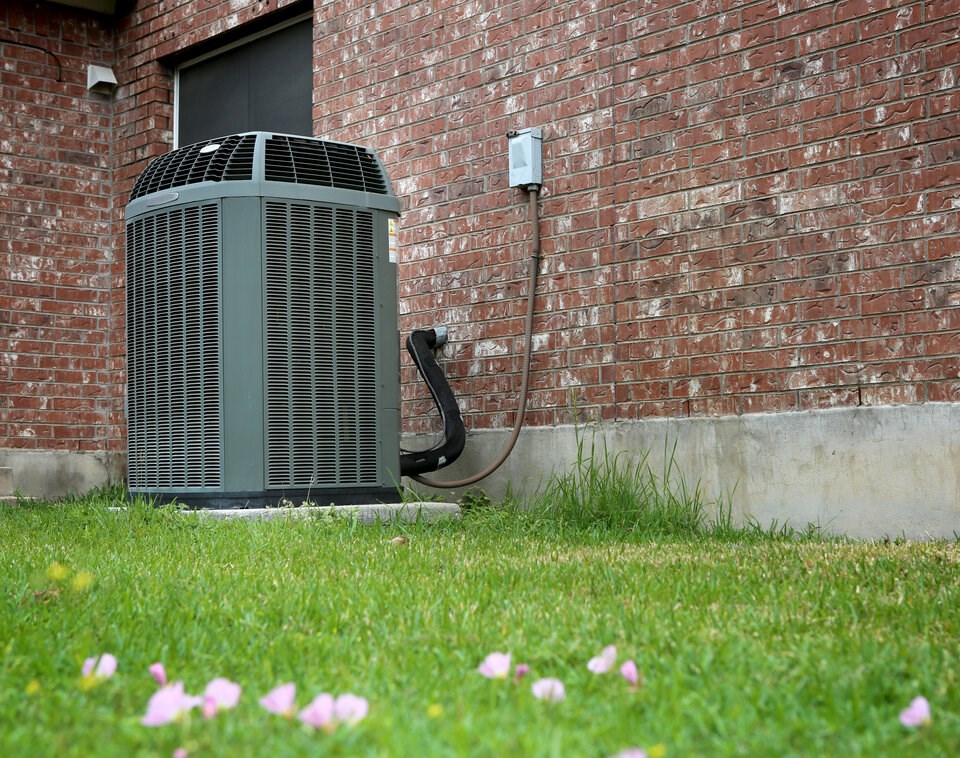Even in the coldest environment, heat pumps are more efficient than gas heating or electric baseboards, a new study has found.
The study, published Monday in the journal Joule, examined the efficiency of air-source heat pumps in sub-zero scenarios down to minus 10 degrees Celsius — “mild cold climates” similar to the populated coastal regions of British Columbia.
The research was led by Canadian Duncan Gibb, a senior advisor at the Brussels-based Regulatory Assistance Project, and carried out with researchers from Oxford University, the University of Exeter, and Ulster University. Together, they pulled 2,760 measurements showing heat pump performance data in Switzerland, Germany, the United Kingdom, the United States, China and Canada.
“Heat pumps are key to decarbonizing Canadian buildings,” said Gibb in a statement.
“This research features data from Canada and shows that heat pumps can perform more than twice as efficiently as an electric heater or gas furnace — even on the coldest day of the year.”
Measuring heat pump efficiency
For common household applications, heat pumps in above-zero climates usually have a year-round coefficient of performance (COP) rating of three to four, meaning triple to four times as many heat units are created for every energy unit used. By comparison, gas and oil furnaces usually have a COP of less than one.
That gap — and the potential to reduce carbon emissions — has led some to call for a rapid electrification of thousands of gas-heated B.C. homes, two-thirds of which will need their gas heating equipment replaced by 2030.
But many have raised questions over how heat pumps might handle B.C.'s, and indeed, Canada's colder climates. B.C.'s biggest gas utility, FortisBC, has called for the inclusion of gas heating into the province's long-term energy mix.
Others have levelled claims of misinformation after a Glacier Media investigation showed a government-industry report gauging the potential future role for renewable gas in B.C. was edited to remove sections stating electric heat pumps have an advantage over burning gas.
What is clear: the overall performance of an air-source heat pump depends on the temperature difference inside and outside a house. The colder it gets outside, the more that efficiency will go down.
Does that mean that fossil fuel combustion is the more efficient choice to heat most B.C. homes?
According Gibbs and his team, the answer is no. They found that when outside temperatures were between five and minus 10 degrees Celsius, COP for all systems sat at a mean of 2.74. That means that during the coldest stretches of winter in Metro Vancouver or Greater Victoria, heat pumps were up to nearly four times more efficient than heating with gas.
Heat pumps, found the research team, were “sufficient to meet heating loads at much higher efficiency than fossil heating and electric resistance heat alternatives.”
Heat pumps in extreme cold climates
In colder climates — those where winter temperatures regularly drop below minus 10 C and approach minus 30 C — heat pump efficiency fell but still held significant advantages over other forms of heating, found the researchers.
The study examined the results from specially engineered cold-climate heat pumps. In Finland, cold-climate air-source heat pumps from Mitsubishi and Toshiba were found to have COPs above 2 even at minus 20 C.
At minus 30 C, the Mitsubishi model maintained COPs between 1.5 and 2, which the Toshiba performed slightly lower. Similar results were found in Minnesota in heat pump-only tests below minus 12 C.

And at the Oak Ridge National Laboratory in Alaska, a cold-climate air-source heat pump found that at minus 25 C, the COP sat at 2.0 — more than double the efficiency of heating with gas. When temperatures dropped to minus 35 C, COP fell to 1.8, still “relatively high,” noted the authors.
In some tests, back-up heating — through traditional electric resistance or combustion — was only deployed when outside temperatures dropped below minus 10 degrees Celsius.
“From a heat provision standpoint, this suggests that concerns over the need for backup heating during mild cold-climate conditions may be unfounded and the role for hybrid systems may be limited,” said the authors.
They suggested more research be carried out to understand how hybrid systems could be deployed to get the most value out of them in the coldest climates.
Polls show Canadians want more energy efficient homes but need education
The look into heat pump efficiency comes amid the release of two polls showing a majority of Canadians aspire for more energy efficient living but remain unsure about what the technology can do and how much it will cost.
One Abacus Data poll, released Aug. 23 on commission from Stand.earth, found only 44 per cent of Canadians know what heat pumps are and what they do. Of the 2,000 Canadians surveyed, 56 per cent remained interested in or already owned a heat pump.
Two weeks later, Abacus released another poll, showing broad interest in living in an energy efficient home. The survey found only seven per cent of Canadians looking to buy a home in the coming years said energy efficiency was not a priority.
In British Columbia, 61 per cent of respondents emphasized the significance of acquiring an energy efficient home — behind Atlantic Canada (77 per cent) and Saskatchewan/Manitoba (72 per cent).
Two-thirds of those who said they wanted to buy an energy efficient home said saving money was their driving factor. Another 38 per cent said they were looking to minimize their environmental impact.

When considering a future home, 57 per cent chose an energy efficient heat pump as an upgrade, though more than half said they were worried about higher upfront costs of energy efficient technologies.
“The findings indicate that while potential homebuyers express high interest in products like high-efficiency HVAC systems, high levels of insulation, or energy-efficient heat pumps, they lean more towards considering readily-available, lower-cost items like LED lighting and smart thermostats when it comes to making actual purchases,” concluded the pollsters.
Heat pumps, which provide cooling in the summer and warming in the winter, could save Canadians billions of dollars a year in monthly electricity bills, according to an August report from the Building Decarbonization Alliance.
The group found Canadians could save $10.4 billion in energy bills — roughly $349 per affected household by 2030 — if they installed heat pumps instead of air conditioners.
The report found such a move would produce $12.6 billion in net benefits and cut the amount of carbon emissions produced by buildings in Canada by more than 22 per cent.




